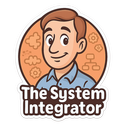the operating system
Understand the role of the computer's operating system.
Your Learning Journey
Understanding the Core Functions of an OS
Using Task Manager to Monitor System Performance
Comparing Graphical and Command-Line Interfaces
Understanding Hierarchical Directory Structures
Exploring Tools for Maintenance and Optimisation
Managing users
Low Stakes Knowledge Check
Module introduction
Have you ever wondered who's really in charge inside your computer? It's not just a collection of parts; there's a powerful manager running the entire show, making sure everything works together smoothly. That manager is the Operating System (OS). This journey will take you from being a user of a computer to an informed operator who understands the secrets behind the screen. We'll peel back the layers, starting with what you see and use every day, and dive deep into the core functions that make your computer tick. By the end of this module, you will have the power to manage your computer's resources, understand its language, and see how the OS acts as the bridge between you and the machine.
Why does this module matter?
Understanding the Operating System is like learning how a car's engine works instead of just how to drive. It gives you the power to diagnose problems, improve performance, and use your computer more securely and efficiently. These skills are not just for technical experts; they are fundamental for anyone who wants to be a confident and capable user of technology, giving you more control over the devices you use every day.
1
For you
This module will help you develop several key computing personas:

The System Integrator: This module is all about how the OS acts as the bridge between hardware and software. You'll learn how it manages all the different parts of a computer, from the CPU to the printer, helping you see the computer not as a magic box, but as a complex, interconnected system.

The Problem Solver: When a computer slows down or an application crashes, the OS is where the first clues can be found. You will learn to use system tools like the Task Manager to investigate what's happening 'under the hood', acting as a systematic troubleshooter to diagnose and solve common performance issues.

The Technician: This module gets practical, exploring the software that manages, maintains, and optimises a computer. You will explore system utilities for tasks like file management and backups, developing the hands-on skills to keep a computer system running smoothly and efficiently.
2
For your future
The skills you learn in this module are the starting point for many exciting and in-demand careers. One of the most direct pathways is to become a IT Support Technician.
Career focus: IT Support Technicians are the heroes of the digital workplace, helping people and organisations solve their computer problems. They are responsible for installing, configuring, and maintaining computer hardware and software, and troubleshooting a huge range of issues to keep everything running smoothly.
Key Skills: A deep understanding of the Operating System is the most critical skill for this role, and that's the entire focus of this module. You will learn about managing users, processes, and files, and how to use system utilities to diagnose problems - all essential daily tasks for an IT Support Technician. This career also relies on the problem-solving and communication skills you'll be developing.
Interesting facts: The demand for skilled IT support is consistently high across almost every industry, from schools and hospitals to banks and game design studios. It's an excellent starting point for a career in technology, with many technicians progressing to senior roles in cybersecurity, network management, or cloud engineering. Starting salaries are often between £22,000 and £28,000, with experienced technicians earning over £40,000.
Our Learning Journey
Our journey to understand the Operating System will begin with a simple analogy: seeing the OS as a busy restaurant manager who has to juggle everything at once. From there, we'll get hands-on, using your computer's own Task Manager to see how the OS manages memory and running programs in real-time. You'll then step into the world of the command line, comparing this powerful text-based interface with the graphical user interface you use every day. We will explore how the OS organises your files, the utility software it uses to keep things running smoothly, and how it manages different user accounts to maintain security and order.
Last modified: January 12th, 2026





















